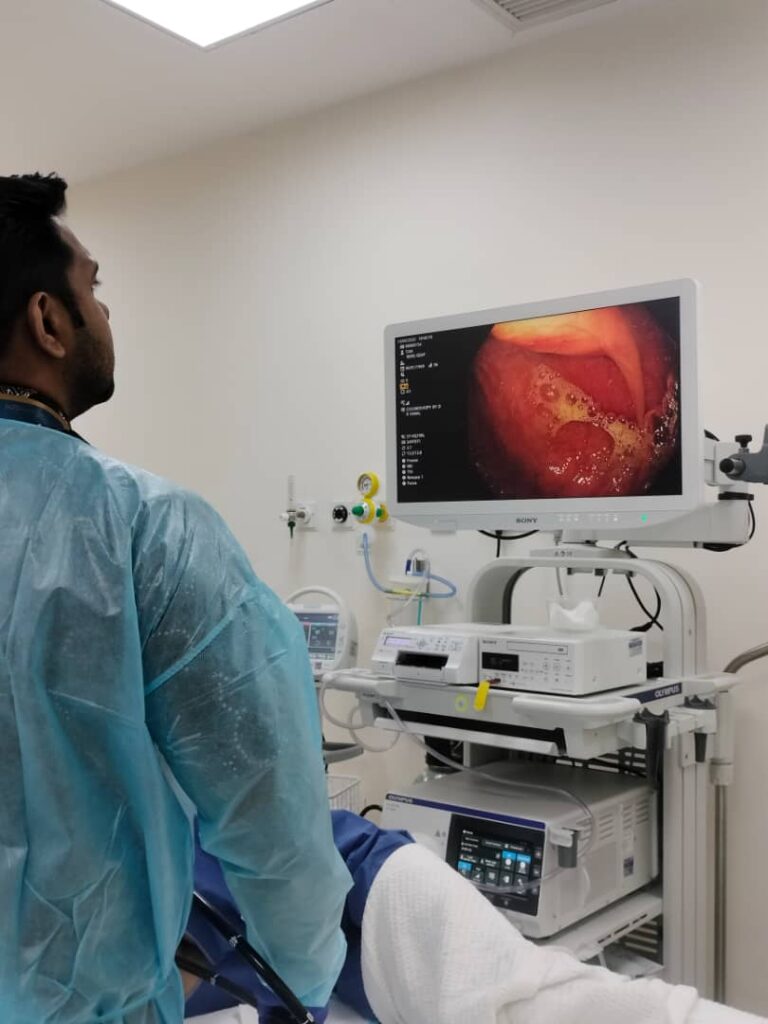Rectal bleeding can be a worrying symptom for many people, and understandably so. Blood in your stool or on the toilet paper can cause anxiety about serious illnesses, but it’s important to know that while sometimes bleeding can be a sign of something serious like colorectal cancer, in many cases it’s due to much more common and treatable conditions, such as hemorrhoids.
In this post, we’ll break down what rectal bleeding is, its common causes, and when you should seek medical attention.
No matter which path you take — laparoscopy or open surgery — the goal is the same: to help you heal and move forward. Take each day at your own pace, and believe in your journey.
What Is Rectal Bleeding?
Rectal bleeding refers to any blood that passes from the anus. It might be seen:
- In the stool
- On toilet paper
- In the toilet bowl after a bowel movement
The color of the blood can give some clues about the source:
- Bright red blood usually indicates bleeding near the anus, such as from hemorrhoids or a small tear (anal fissure).
- Dark red or maroon blood may suggest bleeding higher up in the colon or small intestine.
- Black, tarry stools could indicate bleeding from the stomach or upper gastrointestinal tract.
Rectal bleeding is not a diagnosis on its own — it’s a symptom. The underlying cause needs to be identified for appropriate treatment.


Common Causes of Rectal Bleeding
Several conditions can lead to rectal bleeding, but two of the most common are hemorrhoids and colorectal cancer.
Hemorrhoids
Hemorrhoids are swollen veins in the lower rectum and anus, similar to varicose veins. They can develop from increased pressure due to:
- Straining during bowel movements
- Sitting for long periods on the toilet
- Chronic constipation or diarrhea
- Pregnancy
- Aging
There are two types:
- Internal hemorrhoids: Found inside the rectum, often painless but can cause bleeding.
- External hemorrhoids: Found under the skin around the anus, can be painful and sometimes bleed.
Symptoms of hemorrhoids may include:
- Painless bright red bleeding during bowel movements
- Itching or irritation in the anal region
- Pain or discomfort
- Swelling around the anus
- A lump near the anus, which may be sensitive or painful
Hemorrhoids are very common and usually not dangerous. Many cases can be managed with simple lifestyle changes, medications, or minimally invasive procedures.
Colorectal Cancer
IColorectal cancer (which includes colon and rectal cancer) is a more serious cause of rectal bleeding. It occurs when abnormal cells in the colon or rectum grow uncontrollably. Colorectal cancer often starts as a benign polyp — a small clump of cells — that can eventually turn cancerous.
Symptoms can include:
- Blood in the stool or rectal bleeding
- Changes in bowel habits (such as diarrhea, constipation, or narrowing of the stool) lasting more than a few days
- Abdominal discomfort or cramps
- Unexplained weight loss
- Fatigue
- Feeling that your bowel does not empty completely
Unlike hemorrhoids, colorectal cancer may not cause pain in its early stages, which is why regular screening (like colonoscopy) is important, especially for individuals over 45 or those with risk factors like family history.
Early detection of colorectal cancer greatly improves treatment outcomes.
When you should see a doctor ?

You should seek medical advice if you experience:
- Rectal bleeding that lasts more than a few days
- Heavy bleeding or large amounts of blood
- Blood mixed in the stool
- Dark or tarry stools
- Accompanying symptoms like weight loss, changes in bowel habits, fatigue, or abdominal pain
Even if you suspect something as common as hemorrhoids, it’s still important to have persistent or heavy rectal bleeding evaluated to rule out more serious conditions.
Final Thought!
Rectal bleeding is a symptom that can have many causes — some benign, some serious. While hemorrhoids are a very common and often harmless reason for bleeding, colorectal cancer is a critical condition that requires early diagnosis and treatment.
If you notice rectal bleeding, don’t ignore it. Early medical evaluation can provide peace of mind and, if necessary, ensure timely treatment.
Your health is important — listen to your body and seek care when needed.
Book an appointment with our colorectal specialist today!

Leave a Reply